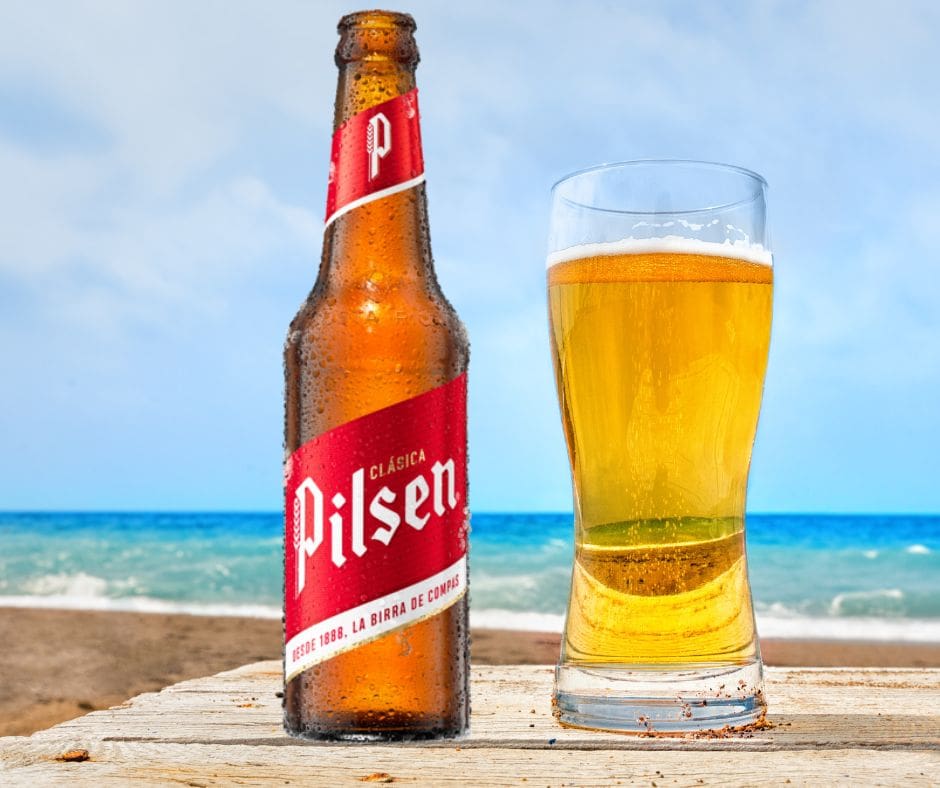Pilsen, a celebrated beer in Costa Rica, not only carries a rich history but also a unique local touch in its colloquial reference. In Costa Rica, when locals order this popular beverage, they affectionately refer to it as “Ruby.” This nickname adds an interesting layer to Pilsen’s story in Costa Rica, reflecting the intimate connection between the brand and its consumers.
Early Beginnings and Foreign Influence
Dating back to the early 20th century, Pilsen’s introduction in Costa Rica was part of a broader fascination with European culture, particularly the Czech Pilsner style. This period saw a keen interest in European products, with local entrepreneurs eager to replicate European brewing success.
Pilsen, a beer that has become a cultural icon in Costa Rica, has a history that dates back to the early 20th century. Known affectionately as “Ruby” among locals, this beer’s journey from its European origins to becoming a Costa Rican staple is a tale of adaptation, growth, and deep-rooted cultural significance.
Early Beginnings and European Influence: The 1900s
The story of Pilsen in Costa Rica began in the early 1900s, a time when the country was increasingly influenced by European culture and products. The introduction of Pilsen was part of this cultural shift, with Costa Rican entrepreneurs eager to replicate the success of the Czech Pilsner style in their homeland.
Establishment of Local Breweries and the Birth of Pilsen
With the founding of local breweries, often by immigrants or well-traveled locals, Costa Rica took its first steps into the brewing industry. These early breweries were instrumental in laying the groundwork for what would later become a flourishing sector.
Adaptation to Local Tastes: A Unique Costa Rican Flavor
A significant aspect of Pilsen’s history is its adaptation to local tastes and ingredients. Costa Rican brewers used different types of local hops and grains, giving Pilsen a distinctive flavor that resonated with the Costa Rican palate.
Growth and Popularity: Becoming ‘Ruby’
Throughout the 20th century, Pilsen, or “Ruby” as it came to be known, grew in popularity. It became a symbol of celebration and camaraderie in Costa Rica, reflecting the country’s relaxed and friendly culture. The nickname “Ruby” is a testament to the beer’s deep integration into the Costa Rican way of life.
Economic Impact: Boosting the Local Industry
The success of Pilsen also had a significant economic impact, leading to job creation in various sectors and advancing production technology in Costa Rica. This growth showcased the country’s ability to develop sophisticated manufacturing processes.
Modern Era: Challenges and Resilience
In recent years, Pilsen has faced challenges from international brands and the rising popularity of craft beers. However, it continues to be a beloved brand and a symbol of national pride.
Pilsen Today: More Than Just a Beer
Today, Pilsen, or “Ruby,” is much more than a beer in Costa Rica. It represents a piece of the nation’s history, a testament to its cultural adaptability, and a symbol of local craftsmanship. As Costa Rica continues to evolve, Pilsen stands as a reminder of the nation’s journey and its enduring spirit.
Since its inception in the early 1900s, Pilsen has evolved from a European-inspired beer to a vital part of Costa Rican culture, affectionately known as “Ruby.” It’s a story of adaptation, growth, and the deep connection between a beverage and the identity of a nation. JTNDaWZyYW1lJTIwd2lkdGglM0QlMjI1NjAlMjIlMjBoZWlnaHQlM0QlMjIzMTUlMjIlMjBzcmMlM0QlMjJodHRwcyUzQSUyRiUyRnd3dy55b3V0dWJlLmNvbSUyRmVtYmVkJTJGUkpKUWtBLTRpWXclM0ZzaSUzRHFvQzY1b0F4TkM5SVJLX1QlMjIlMjB0aXRsZSUzRCUyMllvdVR1YmUlMjB2aWRlbyUyMHBsYXllciUyMiUyMGZyYW1lYm9yZGVyJTNEJTIyMCUyMiUyMGFsbG93JTNEJTIyYWNjZWxlcm9tZXRlciUzQiUyMGF1dG9wbGF5JTNCJTIwY2xpcGJvYXJkLXdyaXRlJTNCJTIwZW5jcnlwdGVkLW1lZGlhJTNCJTIwZ3lyb3Njb3BlJTNCJTIwcGljdHVyZS1pbi1waWN0dXJlJTNCJTIwd2ViLXNoYXJlJTIyJTIwYWxsb3dmdWxsc2NyZWVuJTNFJTNDJTJGaWZyYW1lJTNF







